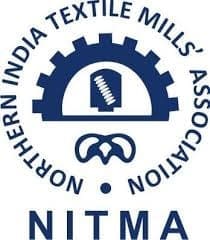Chandigarh , 02nd Sep 2020
Its downstream value-added segment could unleash manifold growth in exports and employment, relieving many units from the burden of high rate of anti-dumping duty, unabated for 2 decades:-
Northern Indian Textiles Mills Association (NITMA) heartily welcomes the Government’s decision to the significant reduction in the anti-dumping duty on imports of Acrylic Fibre originating in or exports from Thailand, the order for which is released by the DGTR today, on 01.09.2020. This is the outcome based on the Sunset review investigation undertaken recently on behest the application filed before the DGTR to review and for extension of the same duty which has been continued its imposition for more than 2 decades by the three domestic producer’s viz. M/s Indian Acrylic Limited, Ms Pasupati Acrylon Limited and M/s Vardhaman Acrylics Limited.
Upon the petition filed by these 3 domestic industry, the DGTR after detailed investigation based on analysis on available sources of data and information based on submissions by various stakeholders and also conducting the oral hearing through video conference for recording views from the domestic industry, the user industry, importers, and the exporters from Thailand, The Royal Thai Government, Ludhiana Spinners Association and its members, the NITMA and its members has arrived at the conclusion that
(a) The importers are likely to enter the Indian Market at dumped prices in the event of expiry of duty.
(b) The domestic industry’s performance remains vulnerable due to dumping of the subject goods (AF) from the subject country, Thailand.
(c) The information on record shows likelihood of continuation of dumping and likelihood of continuation/recurrence of injury to the domestic industry in case the Anti-dumping duty in force is allowed to cease at this stage.
The DGTR has recommended that the continuation of the duty is required on imports of Acrylic Fibre from Thailand in view of the above conclusion. However, the Authority also recommended imposition of anti-dumping duty equal to lesser margin of dumping and the margin of injury, so as to remove the injury to the domestic industry. Accordingly, the DGTR recommended for imposing definitive antidumping duty US$ 15.87 per MT on Acrylic Fibre exported from Thailand by Thai Acrylic Fibre Co. Ltd. for 5 years from the date of the Notification to be issued by the Government, i.e. 31.08.2020. This is a huge relief for the domestic user industry as the earlier duty charged was 162 US $ per MT. Further the
DGTR also recommended NIL anti-dumping duty in the case of Dralon from the EU, while that for Peru US$190.38 per MT and Ukraine US$ 159.87 per MT and Belarus US$ 114.97 per MT respectively. With this reduced rate of duty the user industry can now move toward a competitive regime for AF and strengthen and expand their scale of operations for higher production and growth in the downstream.
We are certain that this significantly reduced rate of anti-dumping duty will give a boost to the Indian Acrylic Textiles segment particularly its downstream value added segments a majority of which are in the unorganized sector have been affected due to the continued imposition of antidumping duty (ADD) on its primary raw material, that is Acrylic Fibre (AF) for the last 23 years from one source or other. Acrylic fibre is a good replacement for wool and hence sometimes called poor man’s wool, with main end use in sweaters, shawls and hand knitting yarns, engaging millions across the Country. Large number of units in the Acrylic value chain is in the downstream value added segment, mostly unorganized, which makes sweater, shawl and other value added products and consists of about 7,500 units that together employ about 10 lakhs people. This policy support will be a great support for a large numbers these MSME segments which have been suffering for long period and had been severely affected by the anti-dumping duties (ADD) on its basic raw material.
Higher rate of ADD has increased cost of yarn which made our downstream value added Industries uncompetitive leading to a grave situation that now we are unable to compete not only in the exports market but even our domestic market have been suffering due large scale imports of sweaters into India by competing countries, loosing many employment opportunities and livelihoods of millions in many regions in the Country. Sweater manufacturing is an important segment of Manmade fibre Industry, and in world sweater market India’s share was a negligible 0.07 billion USD as compare that 10.3 billion USD of China and 2.5 billion USD of Bangladesh as per the 2018 data. This is in spite of we are having all ingredients to compete in the global market, viz. the technical know-how, infrastructure for production and access to markets. But the main reason being uncompetitive in this growing segment is due to high raw material prices.
It is to be mentioned that, when a joint delegation of industrialists from the Ludhiana Spinners Association and that of NITMA met Shri Piyush Goyal ji and requested for removal of anti-dumping duty on Acrylic Fibre, for reviving the segment, which has been continuing for more than two decades. Commerce Minister has assured that a solution for this will be purely on merit basis as it is of high importance and is affecting the downstream value added units and millions of workers. The joint delegation also received support from the Textile Ministry. They have expedited the process for resolving it by making ecommendation after hearing from all concerned stake holders. The Commerce Minister was of the view that making available the raw material to the industry at competitive prices is vital for enhancing competitiveness of the industry, and it will go a long way in accomplishing the Aatmanirbhar mission and also strengthen the overall growth of Indian Textile industry in the future.

